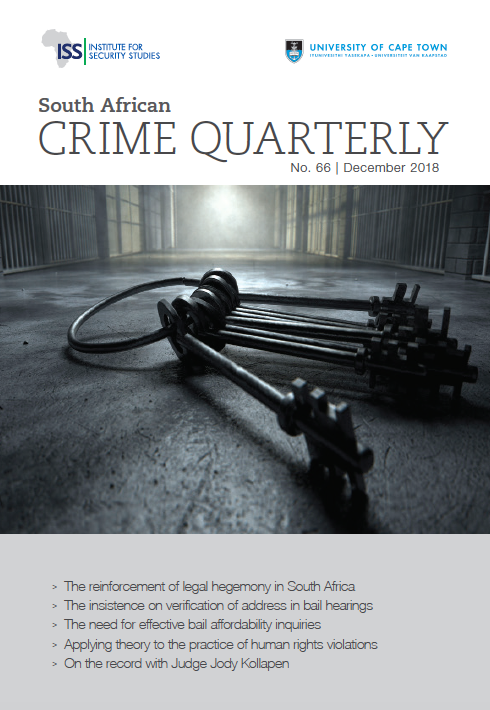Rationalizing injustice: The reinforcement of legal hegemony in South Africa
DOI:
https://doi.org/10.17159/2413-3108/2018/i66a5633Abstract
The legal system in South Africa holds a legitimate and authoritative position in the country’s constitutional democracy and political order, despite the commonplace experiences of injustice that take place at the hands of the criminal justice system. This article looks at how the legal consciousness of community activists, student activists and migrants is shaped by experiences of arrest and detention, and focuses particularly on how their perceptions of the law reinforce the legitimacy and hegemonic status enjoyed by the criminal justice system and broader legal system in South Africa. The article draws on original interviews with community activists, student activists and migrants, who recounted their experiences of arrest and detention. Using a socio-legal framework of legal consciousness, the article unpacks how these groups reinforce legal hegemony through the ways in which they understand and rationalise their experiences of punishment. Despite the reasonable expectation that those who have experienced a miscarriage of justice would be most sceptical and pessimistic about the law’s legitimacy, this article finds that they continue to maintain their faith in the law. The article presents an analysis of interviews conducted with members of these groups, and shares evidence that begins to explore some of the ways in which South Africa’s criminal justice system is able to sustain its legitimacy, despite the gaps between what the law ought to be and what the law actually is.
Downloads
Downloads
Published
Issue
Section
License
Copyright (c) 2018 Author and Institute for Security Studies

This work is licensed under a Creative Commons Attribution 4.0 International License.
SACQ is licenced under a creative commons licence (CC BY) that allows others to distribute, remix, tweak, and build upon your work, even commercially, as long a they give appropriate credit, provide a link to the license, and indicate if changes were made. They may do so in any reasonable manner, but not in any way that suggests the licensor endorses you or your use.
Copyright for articles published is vested equally between the author/s, the Institute for Security Studies and the Centre of Criminology (UCT).




.png)